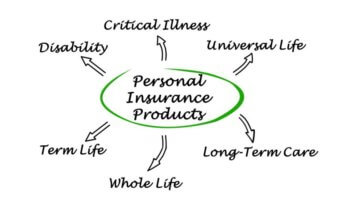
Which type of critical illness insurance plan is the best for you?
Find the right type of critical illness plan across all insurance products in Singapore
Summary: There is no doubt that critical illness coverage is important, as medical inflation means that healthcare will only cost more down the road. But which critical illness insurance plan will provide you with the best value at the lowest cost?
This article aims to provide a better understanding of critical illness insurance via the following:
- Critical illness coverage (Why it is important)
- Differences between early critical illness and critical illness coverage
- Types of critical illness insurance plans (Term life, Whole life and CI plan)
- When is a Term life, Whole life or CI plan suitable for critical illness coverage
- Product features and lowest cost for each of the above plans
What should you know about critical illness coverage
In general, there are 2 types of critical illness coverage that each pays out a lump sum in the event of a valid claim:
- Early Critical Illness (ECI) coverage – Having ECI coverage will provide a lump sum payout upon the diagnosis of any stage of a critical illness. Be it Early, Intermediate or the Advanced stage of a critical illness.
- Critical Illness (CI) coverage – Having CI coverage will provide a lump sum payout only in the Advanced stage of a critical illness. There will be no payout if your medical condition is still in it’s Early or Intermediate stage.
Do you really need a critical illness plan?
When a major illness strike, you are not looking at the short-term medical and hospitalisation cost. This is why you need critical illness coverage:
- Additional funds for private and improved treatment
- Cover existing liability and/ or loss of income during recovery (Mortgage, car, personal loans, etc)
- Post-hospitalisation treatment and medical needs
- Provision for the lost opportunities in the event of longtime health impact
- Minimise disruption to existing financial plans (Eg. Children education, personal retirement savings, allowances, financial commitments, etc)
Why you need both early critical illness and critical illness coverage
The life impact and recovery for an Early Critical Illness and Critical Illness are vastly different. Depending on the severity of the medical condition, a Critical Illness may potentially have a life long impact on your health. Hence, this is why you need both ECI and CI coverage:
- Reason for getting Early Critical Illness coverage – You certainly do not wish to wipe out your savings or delay treatment during the early and intermediate stages of a medical condition due to financial issues.
- Reason for getting Critical Illness coverage – You want the best medical treatment available and/ or income replacement to tide over a prolonged period during critical illness.
The odds of being diagnosed with an early critical illness are also significantly higher, and the cost of getting insured for early critical illnesses is certainly higher compared to critical illnesses.
What are the available plans for getting critical illness coverage?
In the Singapore insurance market, there are 3 main plans that provide comprehensive critical illnesses coverage.

Depending on your personal financial needs, you should carefully consider each of the following available options:
- Term insurance plans with attached riders
- Critical illness insurance plans (Single claim or multiple claims)
- Whole life insurance plans with attached riders
In the following sections, we will review the advantages and disadvantages of each of the above categories of critical plans.
Getting critical illness coverage by term insurance plans
A term insurance plan will allow you the highest insurance coverage for a combination of death, disability, critical illness and early critical illness at the lowest cost per year. A term insurance plan allows you the greatest flexibility in getting the amount of coverage you need as well as the period of coverage needed.
Most term insurance plan allows you to have a high base coverage in the event of death. You have to option to add-on a variety of riders to complete your insurance coverage needs, such as:
- Total and Permanent Disability rider (If not a featured of the term plan)
- Critical Illness rider (Advance stages of major illness)
- Early Critical Illness rider (All stages of major illness)
- Multiple Claims Critical Illness rider (Multiple claims over various major illness)
- Premium waiver riders (Waive off future premiums for stated conditions)
Do note that the insurance premium payable greatly increases if the coverage is required to above age 75. The same is true if your existing term coverage expires in your 70s. Getting a new term plan for coverage may be close to impossible to the health conditions and/ or the increased premium based on your new entry age.
When to get critical illness coverage by term insurance plans
Consider getting a term insurance plan to cover your critical illness gaps only if the coverage is needed for a fixed period of time. The following situations are ideal for temporary boosting your critical illness coverage with a term plan:
- Additional coverage until your child is financially independent of you
- Long term financial commitments are fully paid
- Unable to afford any lifetime critical illness coverage due to your financial budget
- Wish to get the highest critical illness insurance coverage at the lowest cost for a short period of years
- When a high insurance payout for death and/ or disability is required
Get your critical illness insurance coverage using the term life plan comparison portal now!
When not to get critical illness coverage by term insurance plans
A term plan will typically provide the cheapest insurance premium per dollar of critical illness coverage to the age of 70. However, it may not be the ideal option if the following matters to you:
- Looking to pay the lowest overall premium for a lifetime of critical illness coverage
- Seeking a lump sum cash payout upon surrendering the insurance policy in your later years (Term plans has no cash value)
- Flexibility to get high critical illness coverage during your working years, while reducing coverage during retirement
- Multiple critical illnesses claim payouts over your lifetime (Unless a multiple claim CI rider is added)
Getting critical illness coverage by critical illness insurance plans
As the name suggested, a critical illness insurance plan focused on providing you with comprehensive critical illness coverage. The critical illness cover you get on a per dollar basis will be the lowest if only critical illness coverage is need.
When to get critical illness coverage by critical illness insurance plans
Consider using a critical illness plan to coverage for critical illness when:
- Shortfall only exist for early critical or critical illness coverage in your insurance portfolio
- Comprehensive critical illness coverage and features are needed
- Seeking coverage for multiple critical illnesses across all stages of major medical conditions
- Looking to get critical illness coverage at the lowest cost
When not to get critical illness coverage by critical illness insurance plans
It may not be ideal for a critical illness plan to cover your critical illness needs if you expect the following:
- Get a lump sum cash payout when u surrender or terminate your insurance policy
- Have a shortfall for death, disability or income replacement in your insurance portfolio
- Need a lifetime of critical illness coverage at the lowest overall cost
Getting critical illness coverage by whole life insurance plans
A whole life insurance plan consists of both savings and protection elements bundled to fulfil your financial needs over your lifetime. As you only pay an insurance premium for a fixed period of years, this option offers the lowest overall premium for a lifetime of coverage.
The base component of a whole life plan provides a stable growth of your savings and a lump payout upon death.
Depending on your coverage shortfall, you may choose to add-on the following riders:
- Coverage multiplier rider (Boost up the coverage amount of your base plan and riders)
- Total and Permanent Disability rider (If not a featured of the base plan)
- Critical Illness rider (Advance stages of major illness)
- Early Critical Illness rider (All stages of major illness)
- Multiple Claims Critical Illness rider (Multiple claims over various major illness)
- Premium waiver riders (Waive off future premiums for stated conditions)
When to get critical illness coverage by whole life insurance plans
During your working years, you higher coverage as your financial commitment and income earning opportunities are higher. As you near retirement, the amount of insurance coverage needs will be reduced.
Similarly, paying a higher premium over a shorter number of years allows you to pay lesser overall compared to term life or critical illness plan for the same coverage over a lifetime.
Consider getting your critical illness coverage with a whole life plan when the following matters to you:
- Wish to pay the least overall for a lifetime of coverage
- Consider terminating your insurance coverage for lump sum cash in your later years
- Plan to convert your insurance coverage for consistent retirement income
- Need high insurance overall insurance coverage which you are working
Get your critical illness insurance coverage using the whole life plan comparison portal now!
When not to get critical illness coverage by whole life insurance plans
A whole life insurance plan may not be suitable for your critical illness coverage needs if the following are a concern to you:
- Have a limited financial budget for the amount of insurance coverage needed
- Only need early critical or critical illness coverage
- Only need this additional insurance coverage over a limited period of years
What are the cheapest insurance plans for critical illness coverage?
Across our research, InterestGuru.sg has come across insurance plans across various categories that provide excellent value for critical illness coverage.
In no order of preferences or ranking, these are some insurance plans that you should do a comparison with before parting with your hard-earned money.
- The Cheapest Whole Life Plan for Critical Illness Coverage – Aviva MyWholeLifePlan III
- The Cheapest Critical Illness Plan for Critical Illness coverage – Manulife ReadyCompleteCare
- The Cheapest Term Life Plan for Critical Illness coverage – NTUC Income TermLife solitaire
Cheapest Whole Life Plan for Critical Illness Coverage – Aviva MyWholeLifePlan III
Aviva MyWholeLifePlan III is launched in May of 2023 and continues to be a strong competitor with savings and insurance protection bundle into a single whole life plan.

Sample illustration for Aviva MyWholeLifePlan III for Amy, a 25 years old female with coverage booster to age 65.
- Death/ TPD coverage: $100,000/ $500,000*
- Critical Illness coverage: $60,000/ $300,000*
- Early Critical Illness coverage: $30,000/ $150,000*
Amy would be able to get a lifetime of coverage and savings for just ~$250 a month. Even better, she only needs to pay an insurance premium for 25 years which added up to ~$75,000.
By the age of 65, Amy’s whole life plan would also have accumulated projected surrender value of above $100,000. Depending on her financial and health needs, she can terminate the plan to get the cash value or leave it aside for coverage and higher cash value.
Let us work out how Aviva MyWholeLifePlan III fits into your critical illness insurance planning.
Learn more: The best whole life insurance plans for coverage and savings (Singapore Edition for 2023)
Learn more: The best whole life insurance plans according to product features (Singapore Edition for 2023)
*To keep the cost for insurance premium low and get coverage when it matters the most, Amy boosted coverage will end at 65. Her insurance coverage will revert to the values in the first column.
Cheapest Critical Illness Plan for Critical Illness Coverage – Manulife Ready CompleteCare
Looking for comprehensive critical illness coverage? Not until you consider Manulife Ready CompleteCare.

Critical illness may strike more than once, and a major health condition may take a turn for the worse or turn out to be recurring. Manulife Ready CompleteCare addresses all your concerns with multiple early critical and critical illness coverage in a single plan.
Sample illustration for Manulife Ready CompleteCare for David, a 29 years old male for critical illness coverage to age 75.
- Policy sum assured: $100,000
- Policy payout: Up to $900,000 (For Early Critical and Critical Illnesses)
While there is no cash value for this plan, David only pays less than $120 a month for comprehensive critical illness coverage to the age of 75. His total premium paid to age 75 works out to be $66,000 but David can potentially claim up to $900,000 during the policy lifetime.
Let us work out how Manulife Ready CompleteCare fits into your critical illness insurance planning.
Read about: The best early critical illness plans sorted by features (Singapore Edition for 2023)
Cheapest Term Life Plan for Critical Illness coverage – NTUC Income TermLife Solitaire
The solitaire series of products by NTUC Income are specially designed for high network clients with exclusive privileges. Unlike the rest of the products within the series, TermLife Solitaire remains accessible and offers high coverage at an affordable cost.

While NTUC Income TermLife Solitaire offers guaranteed renewal to age 100, the insurance premium will be based on your current entry age upon renewal. As this is a term plan, this plan does not accumulate cash value over time.
Sample illustration for NTUC TermLife Solitaire for David, a 29 years old male with critical illness coverage to age 75.
- Death/ TPD coverage: $1,000,000
- Critical Illness coverage: $500,000
David will be paying ~$250 a month for the above coverages which work out to be $130,000 to age 75. Should a major illness occurs, he will be able to claim for $500,000. David can also be assured that his loved one’s financials will be taken care of, in the event of an untimely death.
Let us work out how NTUC TermLife Solitaire fits into your critical illness insurance planning.
Read about: The best term plans sorted by product features (Singapore Edition for 2023)
Read about: Term life or Whole life, which is suitable for you?
Learn more: Understanding the figures from the insurance coverage calculator
Compare all critical illness insurance plans across multiple insurers in Singapore!
Our partnered financial planners will draft their proposals based on your given input. Your information and details will only be used for communication with you.
All comparisons done are strictly confidential and solely based on your individual retirement needs.
*For a limited time, get attractive incentives when you take up any product that is proposed by our team of financial planners.
Compare critical illness insurance across all leading insurers in Singapore!

Securing the right critical illness coverage plan has never been this easy
Drop us a message to have a critical illness insurance plan structured to your needs by a financial planner.
Don’t worry, there is no obligation to take up any stuff and consultation is 100% free!
Check out the following for more on financial planning:
- How much insurance coverage do you need? (Singapore Edition)
- 5 reasons why u should plan for retirement income
- The best insurance plans across all categories for 2023 (Singapore Edition)
Note: All financial figures are based on close approximate and all non-guaranteed figures are based on the higher tier of 4.75% investment returns. The sample illustrations are for illustrative purposes only and is not a contract of insurance. Early surrendering or cashing out from Retirement plans or Annuity policies will certainly result in financial loss. In the event of doubt, always refer to the precise terms and conditions as specified in your policy contract. Seek the advice of a qualified financial professional or a licensed financial adviser before making any decision or financial commitment.
*Terms and conditions may apply, speak to our financial planners or drop us a message for more details.


